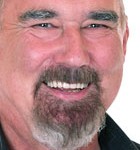Mending the Fragmented Self With Soul Retrieval
by Dr Keith Scott-Mumby
I turn now to the shaman model of healing called soul retrieval, not merely as a curiosity, but in considerable awe and respect for a tradition as old as consciousness and twice as old as other healing arts! It has worked so well for so long among so many peoples, it is in every sense a Super Healing technique.
The fact that most of the proponents are supposedly less sophisticated than ourselves does them less than justice and probably turns our blind eye of prejudice away from what may ultimately prove to be the best of all wellness approaches.
Journey with me and see if you agree [KSM].
Soul Retrieval
Quite simply, there is no real health without true being. We are not a body; therefore to treat only the body is to miss much of the impact and purpose of the healing arts. In the words of Sandra Ingerman, US career-shaman, “For shamans the world over, illness has always been seen as a spiritual predicament”. (Ingerman S, Soul Retrieval, Harper San Francisco, 1991, p. 17). Her lovely book is subtitled “Mending the Fragmented Self”, which says it all. Mechanistic reductionist science has little currency here.
One of the most succinct models for dis-ease in this domain is the “loss of soul” or soul parts. You might prefer the term “life particles” to soul parts. The concept is that of parts of the self being torn off and getting lost. This would typically take place at times of extreme suffering. Today we often find soul loss is a result of such traumas as incest, abuse, loss of a loved one, surgery, accident, illness, miscarriage, abortion, bad drug trips and military combat. Even witnessing traumatic events, such as a crime scene or bloody death, can cause loss through shock and horror. Coma, of course, is the most extreme form of soul loss.
People will often describe feeling as if they are incomplete after the calamity; “something died inside me”, “I don’t feel myself anymore”, “I left my heart behind”, “I don’t feel all here”, “I’m aching and empty inside” and so on. The hippies used to have an expression “feeling untogether”, which is a rather poetic way of putting it, though in their case it was often self-inflicted, due to recreational drug abuse.
What seems to happen is the patient loses some of their resources when the part or parts flee. Certain skills, qualities or other desirable character traits are no longer there and so he or she cannot act out these aspects of the self. The same is true in reverse, of course, and the skills and knowledge present at the moment of schism return remarkably when the retrieval procedure is completed. But the break is very real and the homecoming particles sometimes have to be brought up to date regarding what has happened to the patient in the intervening years in order to fully integrate. Continue reading



